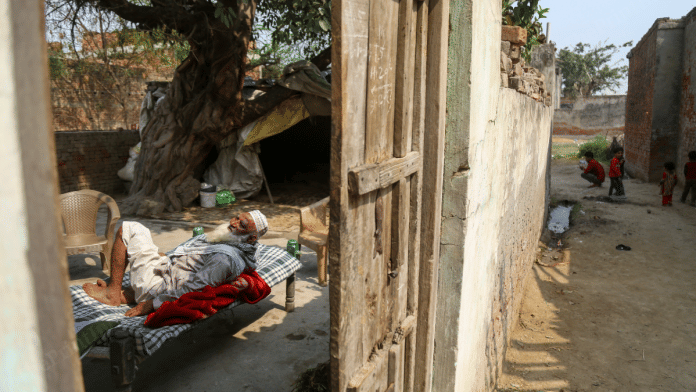Hapur: Samaydeen lay on a cot in the verandah of his cramped house in Hapur’s Madhapur village, gazing at the sun. “Qasim kept begging for a sip of water. The more he asked for water, the more they hit him. I closed my eyes and thought of Allah. After a while, the body doesn’t feel pain,” the 65-year-old tells ThePrint in an enfeebled voice.
Injuries he suffered to the ribs make it hard for Samaydeen to speak for long without running out of breath. The aching wounds become unbearable during the winter, he says, adding that on some days he thinks he should have died on that fateful day six years ago.
Samaydeen, a farmer, and Qasim, a cattle trader from Pilkhuwa village in Hapur, were attacked by a group of cow vigilantes on 18 June, 2018. The mob lynched 45-year-old Qasim to death on suspicion of cow slaughter and seriously injured Samaydeen, dragging their bodies for over a kilometre to fields near a temple in Bajhera Khurd village.
While Samaydeen was fortunate enough to have survived, Qasim’s body was found pierced with nails, his limbs broken, ribs fractured and skin scraped with a sickle.
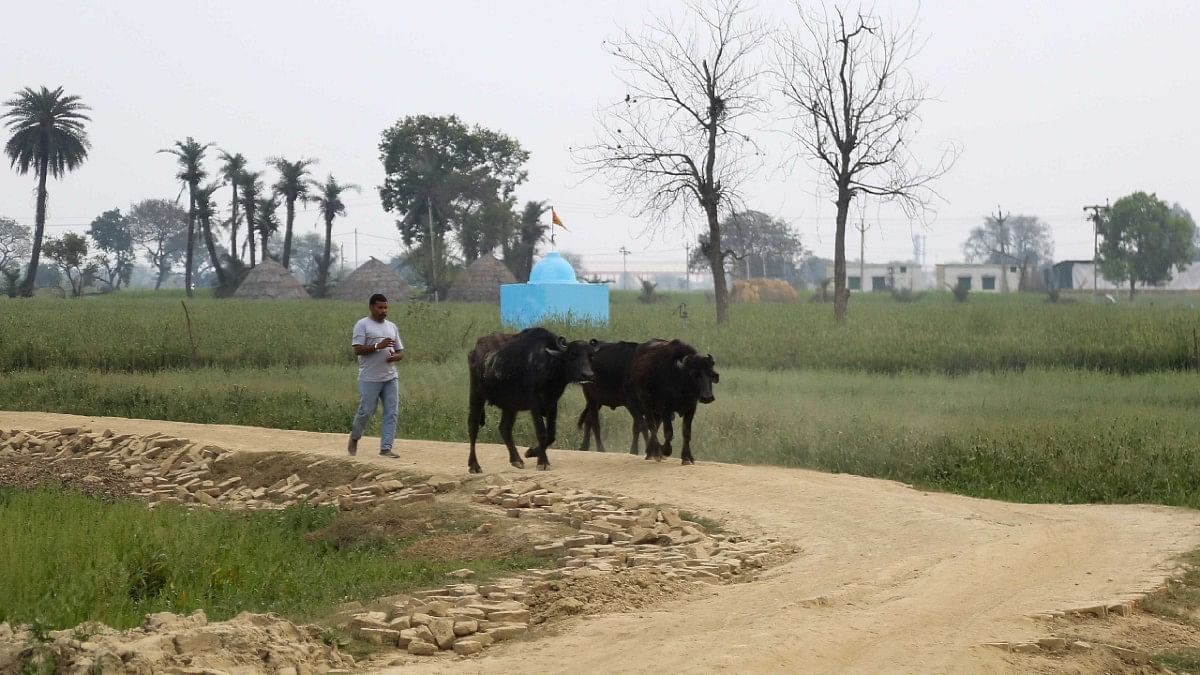
On Tuesday, a local court convicted the 10 accused on charges of murder, attempt to murder, unlawful assembly and creating enmity between groups on the basis of religion. They were sentenced to life imprisonment.
A fine of Rs 58,000 each was also imposed on them by the court.
The families of Samaydeen and Qasim had told the court that they did not want the death sentence for the perpetrators. “We want justice, not revenge,” Qasim’s brother had said.
Recalling the day she last saw her father, Nisha tells ThePrint that Qasim received a call around 11 am that morning from someone asking him to meet for a cattle trade. “He hung up and hurried. As he was leaving, he told us he would be back in two hours. In the evening, a neighbour told me he had been killed over suspicion of cow slaughter,” she adds. A tear rolls down her cheek as she wipes the dust off a picture of her parents.
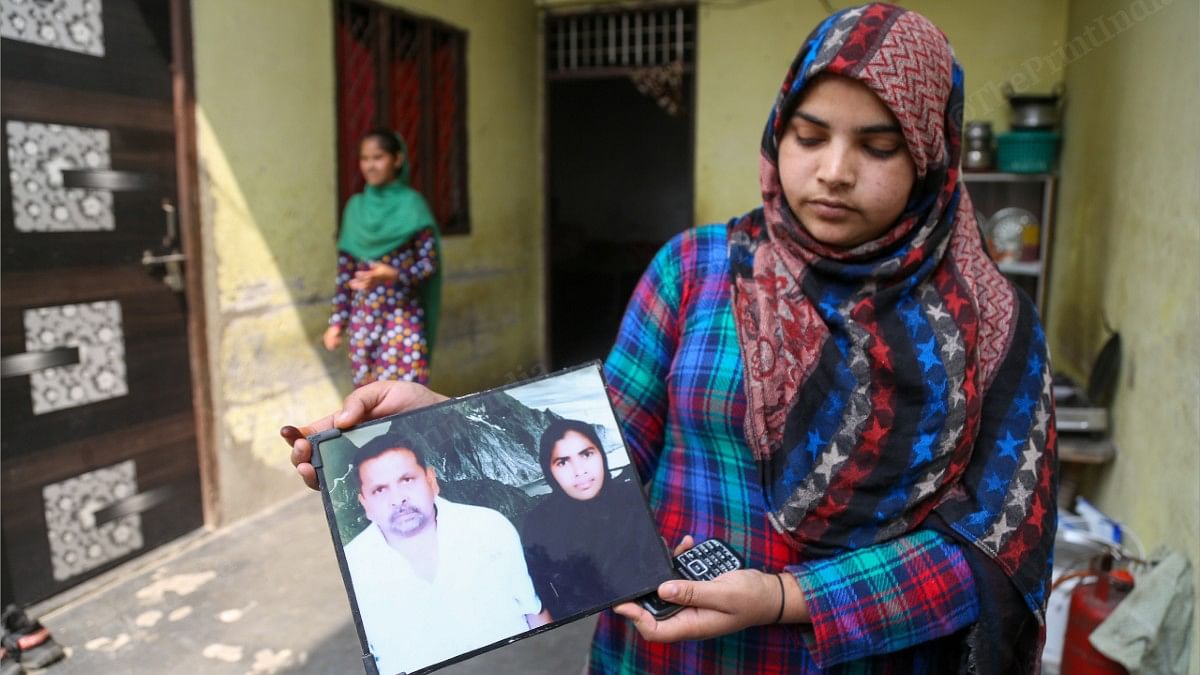
“The judgment brought us some relief. Abbu (father) will never come back; we have made peace with it, but at least now this verdict will set a precedent,” says Nisha, who was 12 at the time of the incident.
For Samaydeen, the bump on his head and marks on his hands and feet are testimony to the lynching. “Justice has been served. There have been multiple delays but we are happy with the court’s verdict,” he says. “Now I can close my eyes and rest in peace.”
‘They kept hitting us, cops were too afraid’
It was three days after Eid in 2018. Samaydeen and his neighbour Hassan were sitting on a cot, talking about how the month of Ramzan went by in a flash. It was then that they first heard a man, later identified as Qasim, crying out for help — “somebody save me”.
The two rushed to his rescue, at first trying to intervene from a distance. The cow vigilantes had been chasing Qasim from inside the Madhapur jungle. When Samaydeen went closer, the mob turned on him while Hassan fled the spot.
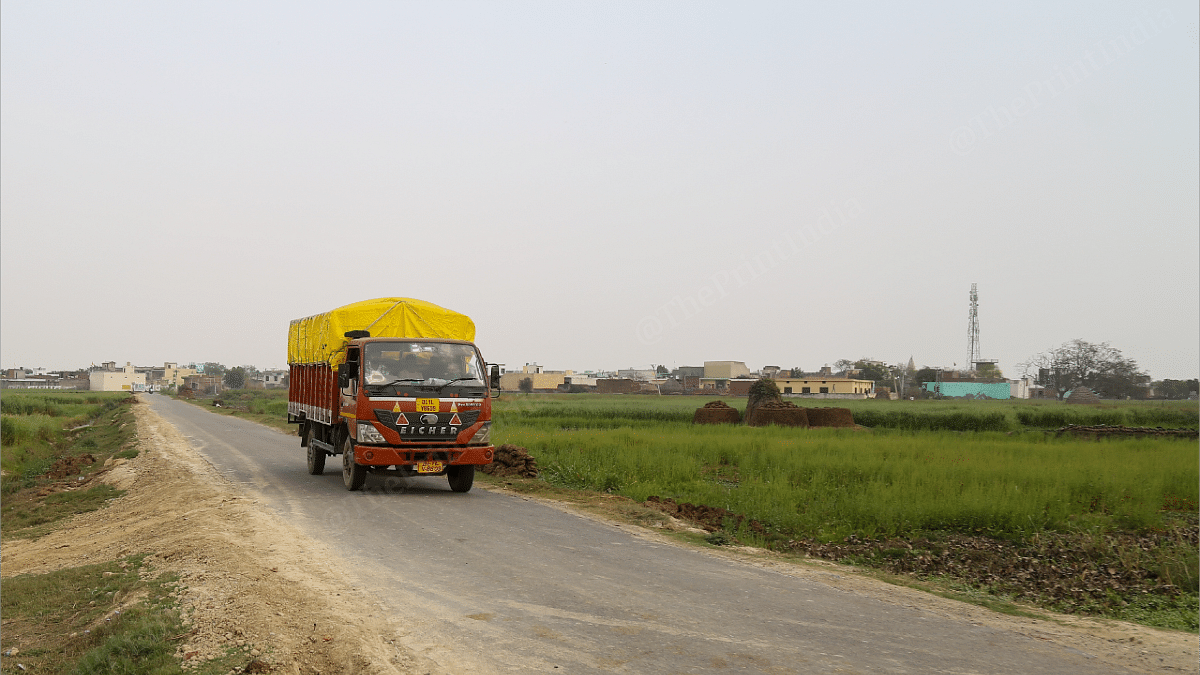
Samaydeen says the perpetrators pulled his beard and forced him to confess on camera that he was out to slaughter cows. “They kept hitting us. In between, they would abuse us, call us cow smugglers. They would then abuse us a little more because we are Muslims and start beating us up again. I told them what they wanted to hear — that I had slaughtered cows. There was no other choice.”
Visuals of Qasim being dragged in the presence of three policemen compelled the Uttar Pradesh police to issue an apology and suspend the three personnel. “The policemen were afraid to stop the accused. I was motionless but could hear everything,” says Samaydeen.
After the lynching, the police took Qasim and him to a local hospital but the authorities there refused to admit them on account of their condition. Samaydeen says he does not remember the trip he made to reach a second hospital. “My body was numb and my brain was giving up. A few minutes later, someone said that Qasim is no more,” he recalls.
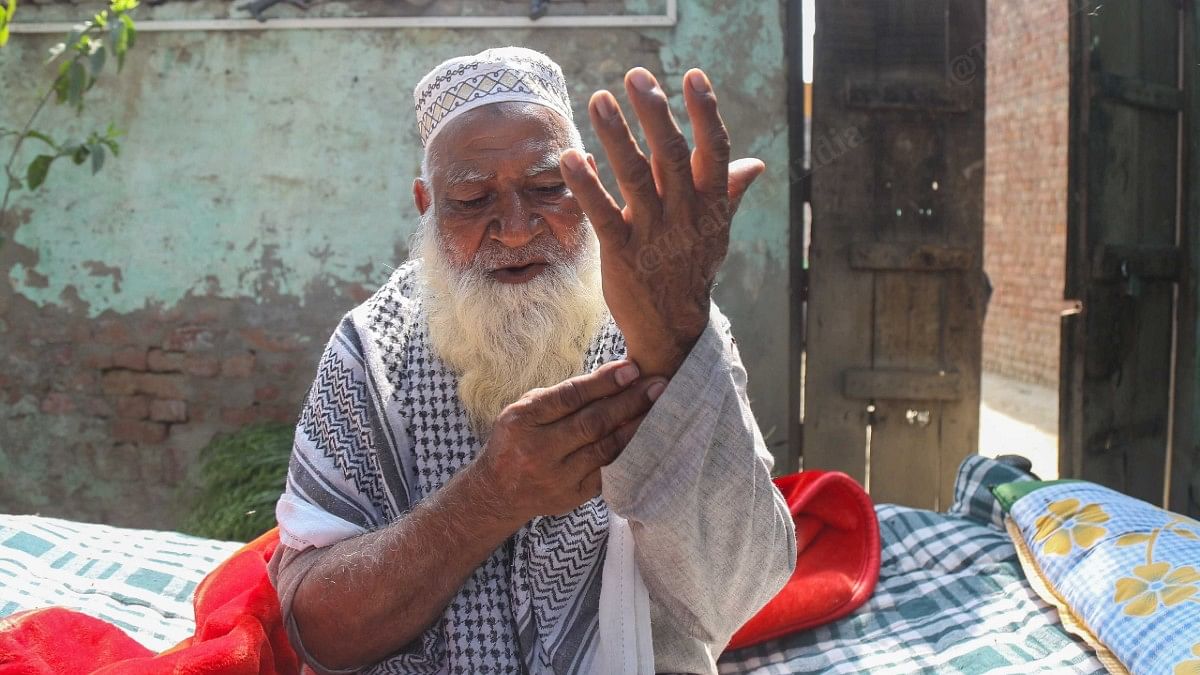
According to Samaydeen, the only thing that kept him going was that he never missed a “roza (fast)” during Ramzan. “My body was used to being without water. I worked on the farms all through Ramzan. I didn’t plead with the accused even once for water. They dragged us till the Devi mandir and dumped us on the fields in the scorching June sun.”
‘They ruined our lives’
The role of the police was also called into question for initially suggesting that the lynching stemmed from an incident of “road rage”.
This claim was further weakened by contradictions in the general diary entry and First Information Report (FIR) lodged at Pilkhuwa police station. While the FIR said a motorcycle hit Samaydeen and an argument followed, the general diary entry only mentions two men being assaulted by a mob without making any mention of “road rage” or a “motorcycle”.
It was only after families of the victims knocked on the doors of the Supreme Court that the matter was dealt with as it should have been from the get-go. Samaydeen’s statement was recorded before a magistrate under Section 164 CrPC, he was given police cover and a report was sought from Inspector General of Police (Meerut range) by 13 August that year.
In September 2018, the apex court having recognised that the incident was one of mob lynching directed that a probe be carried out in accordance with guidelines laid down in Tehseen S. Poonawalla vs Union of India, which warrant that trials in cases of mob lynching be concluded within six months of a competent authority taking cognisance of it.
A chargesheet was filed on 4 November, 2018, but it took six years for a court to ascertain guilt. During this period, four rounds of final arguments were heard and three judges were transferred before they could deliver a verdict. Samaydeen had moved the Supreme Court over the delay after which the local court reserved its judgement in February this year.
“Police made a mess of the case at first. They kept telling us it was an accident, and wouldn’t let us see the body. Then they wouldn’t record our statements. They harassed us but this judgment has given us hope,” says Qasim’s brother Salim. Sitting next to him was head constable Mohammed Irshad who has been assigned to the family for their protection.
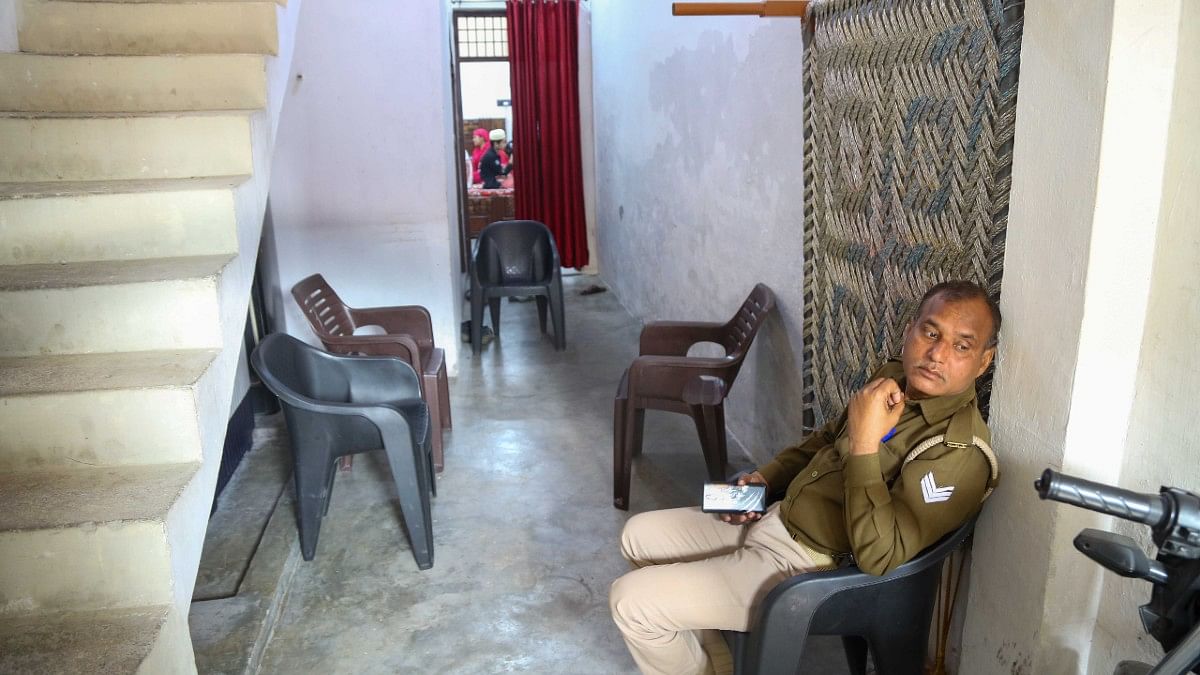
Not too far from them was Qasim’s widow Naseema. “Police didn’t call us. Someone from the village informed my brother-in-law. Everything after that has been a blur. I could never look at his body. They ruined our lives,” says Naseema, a mother of six.
No one in the family now trades in cattle for fear that a rumour may cost them their lives.
(Edited by Amrtansh Arora)
Also Read: Muslim man ‘lynched on suspicion of carrying beef’ in Bihar’s Saran district, three held



